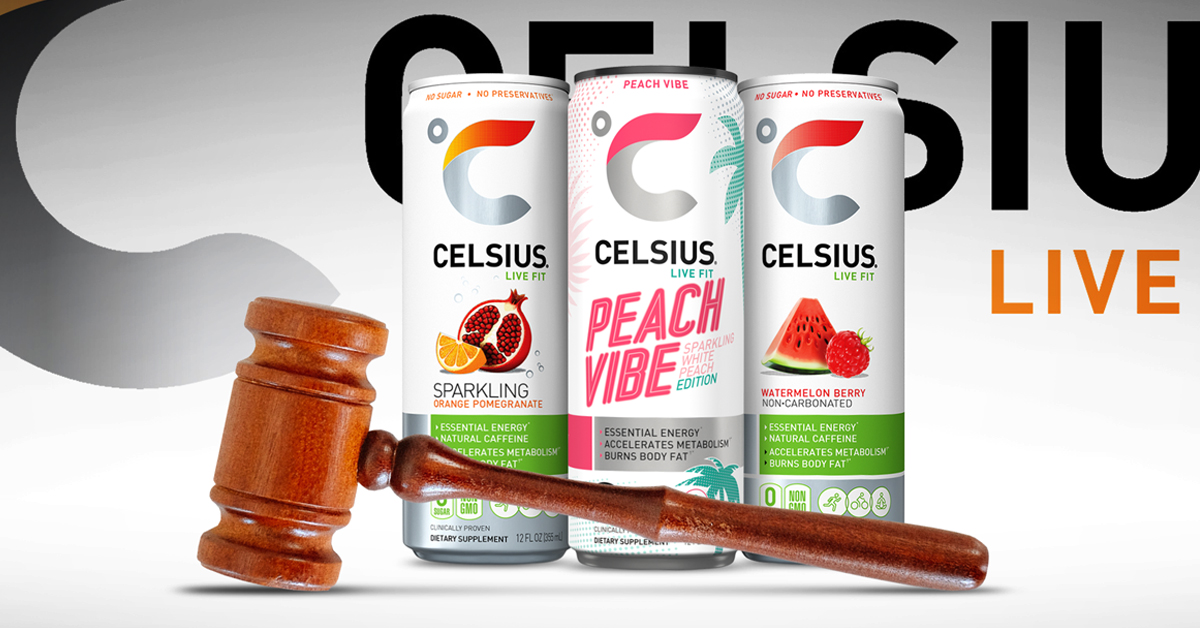Celsius Drink Lawsuit: Unraveling the Legal Battle
by Arjun Dev

Celsius Drink Lawsuit the maker of Celsius fitness drinks, has faced legal challenges in the form of lawsuits alleging false advertising and misleading marketing practices. These lawsuits, filed by consumers and competitors alike, claim that Celsius drinks do not deliver the promised benefits and that the company has engaged in deceptive practices to promote its products. This article delves into the details of the Celsius drink lawsuit, the allegations made, and the potential impact on the health and wellness industry.
Table of Contents
ToggleBackground of the Celsius Drink Lawsuit
The Celsius drink lawsuit stems from claims that the beverages, which are marketed as fitness drinks that can boost metabolism and help burn calories, do not live up to their advertised benefits. Plaintiffs allege that Celsius has engaged in false advertising by making unsubstantiated claims about the effectiveness of its products.
Allegations and Claims in the Lawsuit
- False Advertising: Plaintiffs in the Celsius drink lawsuit claim that the company has engaged in false advertising by making claims about the benefits of its drinks that are not supported by scientific evidence.
- Misleading Marketing: Some plaintiffs allege that Celsius has engaged in misleading marketing practices, such as using before-and-after photos and testimonials that exaggerate the benefits of its products.
- Class Action Status: The Celsius drink lawsuit seeks class action status, allowing other consumers who have purchased Celsius drinks to join the lawsuit and seek damages.
Celsius Holdings’ Response and Legal Defense
Celsius Holdings has denied the allegations of false advertising and misleading marketing practices, stating that its claims are supported by scientific research. The company maintains that its drinks are safe and effective when used as directed.
Scientific Evidence and Controversy Surrounding Celsius Drinks
The scientific community is divided on the effectiveness of Celsius drinks. While some studies suggest that the ingredients in Celsius drinks, such as green tea extract and guarana, may have metabolism-boosting properties, other studies have found no significant effects on metabolism or weight loss.
Implications of the Celsius Drink Lawsuit
The Celsius drink lawsuit raises important questions about the regulation of health claims in the food and beverage industry. It also highlights the need for consumers to critically evaluate marketing claims and seek evidence-based information when making decisions about their health and wellness.
FAQs
Q: What is the Celsius drink lawsuits about?
A: The Celsius drink lawsuits is about allegations of false advertising and misleading marketing practices regarding the effectiveness of Celsius fitness drinks in boosting metabolism and aiding in weight loss.
Q: What are some common allegations in the Celsius drink lawsuits?
A: Common allegations in the Celsius drink lawsuits include claims of false advertising, misleading marketing practices, and exaggeration of the benefits of Celsius drinks.
Q: What is Celsius Holdings’ response to the lawsuit?
A: Celsius Holdings has denied the allegations and maintains that its claims are supported by scientific research.
Conclusion
The Celsius drink lawsuit underscores the complexities of advertising and marketing in the health and wellness industry. As the lawsuit continues to unfold, it serves as a reminder to companies to substantiate their claims and to consumers to approach health products with a critical eye.
Also Read:
https://jetbiography.com/emma-stone-biography/
Share this post:
Celsius Drink Lawsuit the maker of Celsius fitness drinks, has faced legal challenges in the form of lawsuits alleging false advertising and misleading marketing practices. These lawsuits, filed by consumers and competitors alike, claim that Celsius drinks do not deliver the promised benefits and that the company has engaged in deceptive practices to promote its…
Recent Posts
- The Web Edge Guiding System: A Comprehensive Guide to Advanced Alignment Technology
- A Deep Dive into Blue Top HGH Reviews: What You Need to Know
- The Wuthering Wave Online: Navigating the Virtual Realm of Dynamic Interaction
- Double Aspheric Lenses: The Pinnacle of Modern Optical Design
- How to Download TikTok Videos in Seconds: A Step-by-Step Guide